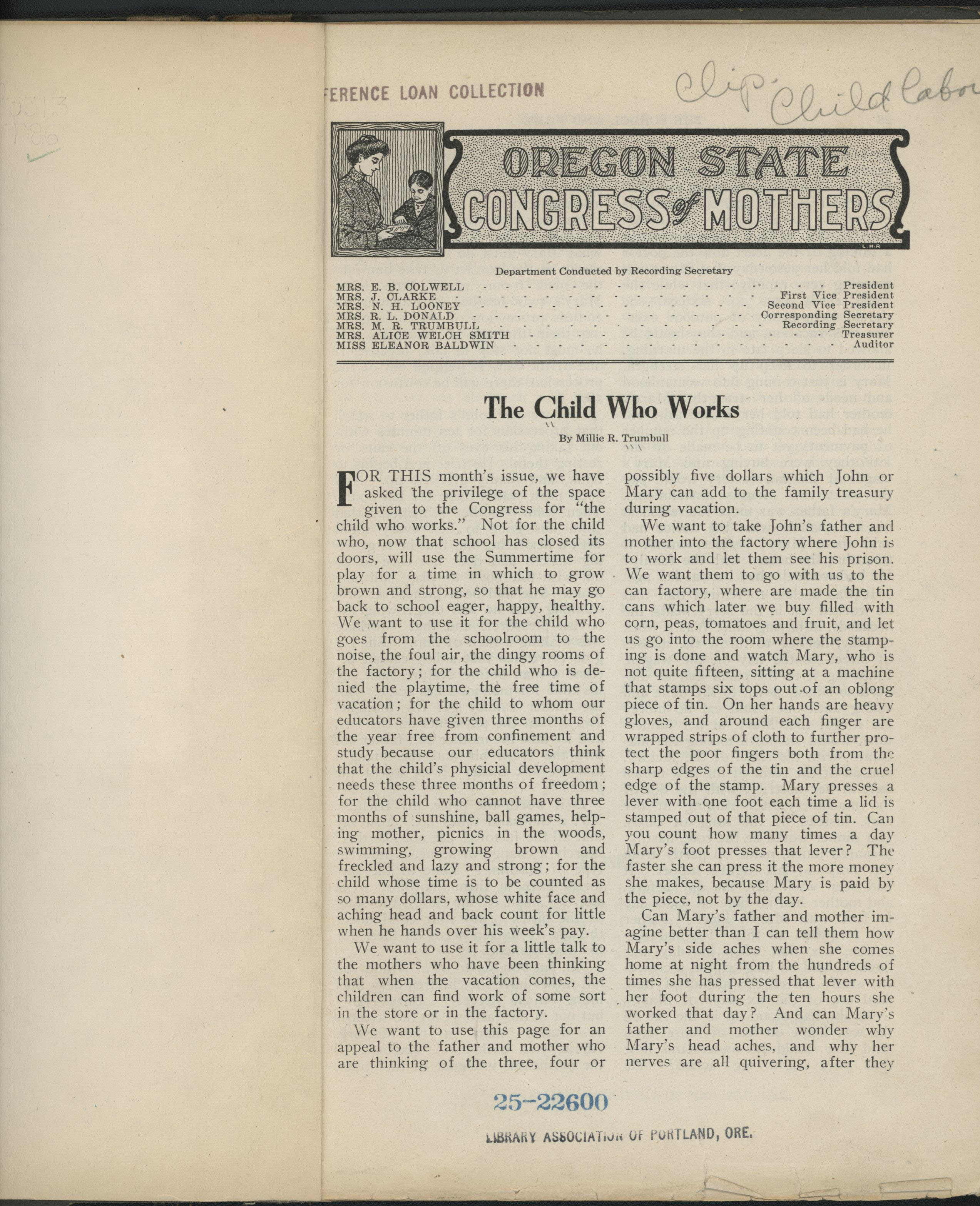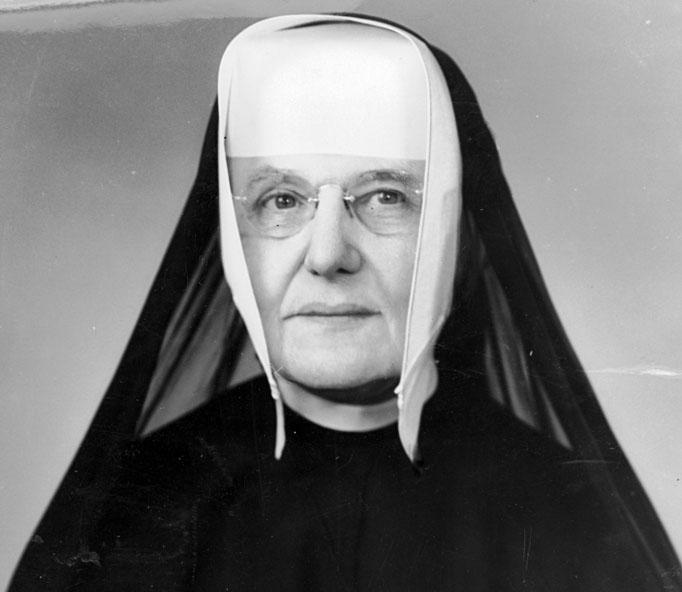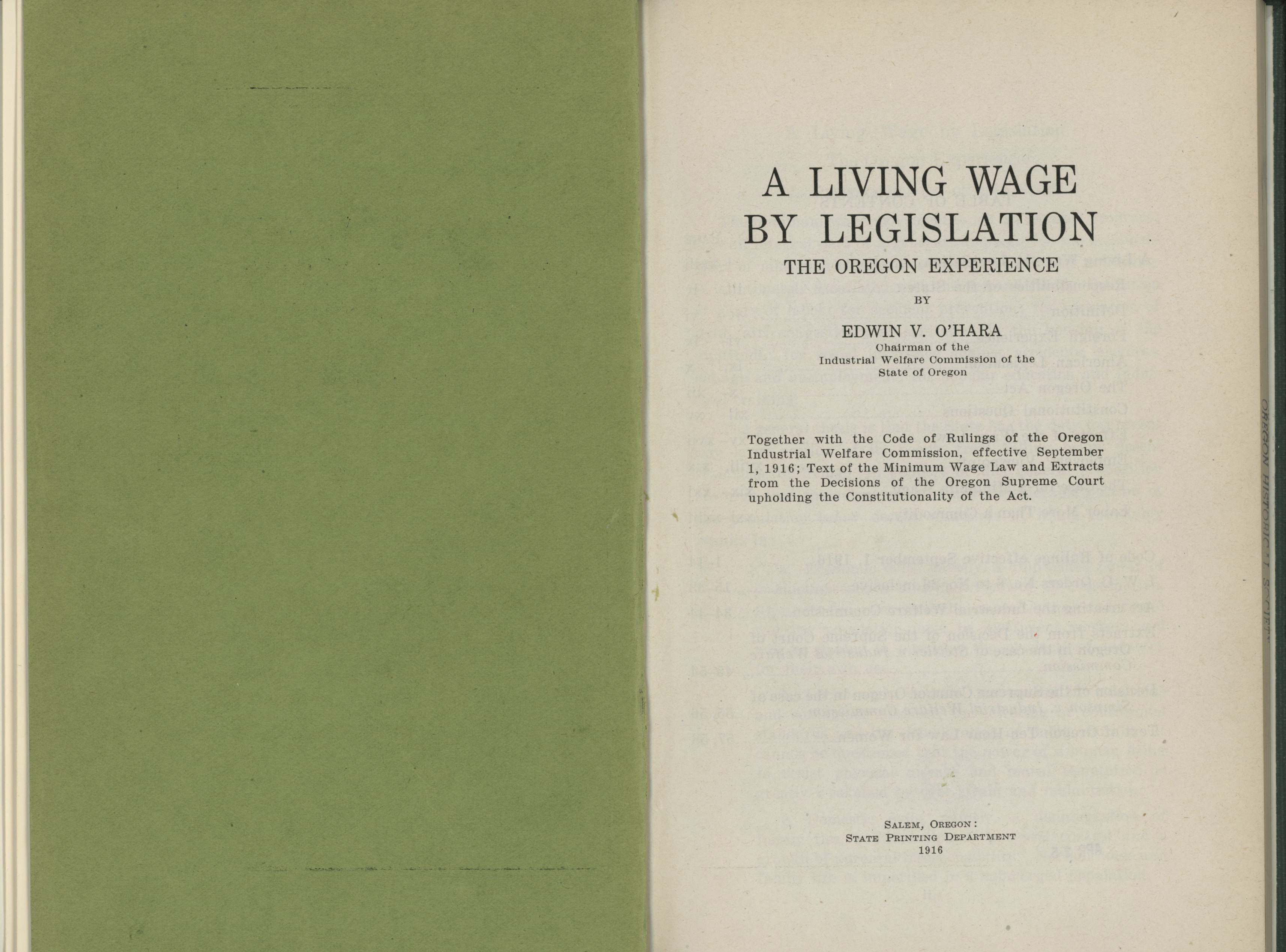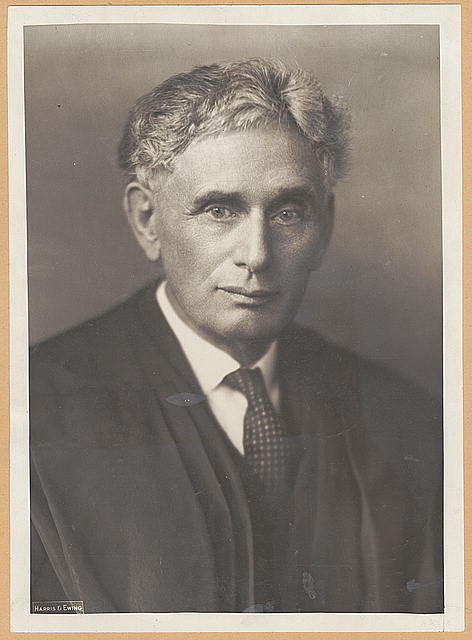Millie Reid Trumbull was a forceful advocate for women and children in the industrial workplace. As the first executive secretary of the Oregon Board of Inspectors of Child Labor, Trumbull helped enforce child labor laws. She was so well known in that role that early twentieth-century employers exclaimed when Trumbull approached their business: “Put on your hat Willie! Here comes Millie!”
Millie Wunderlich began life in Dubuque, Iowa, in 1866. Her father, John Wunderlich, was a German immigrant, and her mother, Elizabeth Reid, was from Pennsylvania. Millie had two sisters, Laura and Mary. Trumbull’s formal education was limited, but she studied at Iowa Normal School and the Armour Institute of Technology in Chicago. In 1887, Millie Wunderlich married Bernhard Trumbull, and they settled in Chicago.
Trumbull later traced her introduction to the social reform movement to a talk she heard at the Chicago Women’s Club in 1892 given by Florence Kelley on “The Sweating System.” Trumbull became acquainted with the renowned reformer and learned about child labor laws and the fledgling development of Chicago’s juvenile court. When the Illinois Central Railroad Company transferred Trumbull’s husband to Portland in 1900, Trumbull brought her activism West.
In 1903, the Oregon State Legislature created the Bureau of Labor Statistics, which included a Board of Inspectors of Child Labor. Trumbull was one of five commissioners appointed to the board. The board was not allocated any appropriations for paid staff until 1911, however, so it could have been powerless. But Trumbull “dug deep into her own pocket, and the pockets of other board members” to pay for minimal expenses to enforce the child labor law. She was the most visible presence of the board, visiting manufacturers and harvesting and canning facilities that used child labor. Governor Oswald West judged that the success attained by the commission was “largely due to her conscientious service.”
Although the use of child labor (workers under the age of sixteen) had been in decline since the 1880s, there was still widespread use of minors in manufacturing and agricultural work, both in the fields and in the canning and preserving industry. Due to the seasonal nature of harvesting and canning, children often accompanied their mothers to work. Industrial wages for adult men and women were low enough that many working-class families relied on the meager earnings that minor children could contribute.
Trumbull’s reform work extended to women wageworkers. As a member and officer of the Consumer’s League of Oregon, she lobbied on behalf of Oregon’s 1903 “ten-hour law” to limit women industrial workers to a maximum number of hours per day. Laundry owner Curt Muller challenged the law, and his suit became the basis for the landmark case Muller v. Oregon. The United States Supreme Court unanimously upheld Oregon’s ten-hour workday in 1908 on the basis that “woman” was “properly placed in a class by herself, and legislation designed for her protection may be sustained. . . .” In 1913, Trumbull joined forces with local Catholic social justice reformers Caroline Gleason and Father Edwin V. O’Hara to lobby for the nation's first enforceable minimum-wage law for women and minor workers. The minimum-wage law created Oregon’s Industrial Welfare Commission, which oversaw enforcement of the statute.
Millie R. Trumbull served as the executive secretary of the Industrial Welfare Commission from 1917 to 1931, while continuing in her paid position as inspector for the Child Labor Board. She remained in her dual posts until the Industrial Welfare Commission was absorbed into the Bureau of Labor in 1931.
Millie R. Trumbull died in the Portland Sanitarium on December 5, 1940.
-
![Full article available as pdf under documents tab.]()
The Child Who Works, by Millie R. Trumbull, c.1910.
Full article available as pdf under documents tab. Courtesy Oregon Hist. Soc. Research Lib., PAM331.31 T869c
Related Entries
-
![Caroline Gleason (1886-1962)]()
Caroline Gleason (1886-1962)
Caroline J. Gleason—Roman Catholic nun, social reformer, and educator—h…
-
![Fr. Edwin O'Hara (1881-1956)]()
Fr. Edwin O'Hara (1881-1956)
Fr. Edwin O'Hara—Roman Catholic priest, educator, social reformer, and …
-
![Muller v. Oregon (1908)]()
Muller v. Oregon (1908)
Muller v. Oregon, one of the most important U.S. Supreme Court cases of…
-
![Oregon Industrial Welfare Commission]()
Oregon Industrial Welfare Commission
In the spring of 1913, the Oregon legislature created the first compuls…
Related Historical Records
Map This on the Oregon History WayFinder
The Oregon History Wayfinder is an interactive map that identifies significant places, people, and events in Oregon history.
Further Reading
Dilg, Janice. “’For Working Women in Oregon’: Caroline Gleason/Sister Miriam Theresa and Oregon’s Minimum Wage Law.” Oregon Historical Quarterly 110:1 (Spring 2009), 96-129.
Johnson, Elaine Zahnd. “Protective Legislation and Women’s Work: Oregon’s Ten-Hour law and the Muller v. Oregon case, 1900–1913.” PhD diss., University of Oregon, 1982.
Myers, Gloria. A Municipal Mother: Portland’s Lola Greene Baldwin, America’s First Policewoman. Corvallis: Oregon State University Press, 1995.




